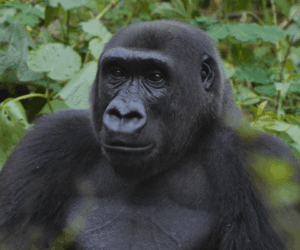Farmers and civil society organisations in Kano have called on government at all levels to ban Genetically Modified Organisms (GMOs) and harmful pesticides, while urging increased investment in agroecology as a sustainable alternative to safeguard food systems and public health.
The call was made during a two-day Practical Agroecology Training and Stakeholder Engagement held in Kano, organised by the Health of Mother Earth Foundation (HOMEF) in collaboration with Surge Africa and the GMO-Free Nigeria Alliance.
The event brought together farmers, community leaders, CSOs, environmental advocates and government agencies.
SPONSOR AD
50 farmers, 30 women and 20 men from Gabasawa Local Government Area were trained on organic farming practices at Surge Africa’s Jeji Restoration Project site. The sessions covered techniques for producing organic fertilizers and pesticides using local materials such as cow dung, bananas, garlic, and legumes. Farmers also received tools and incentives, including drums, nets, and seeds, to support continued practice.
Over 20 stakeholders drawn from farmer groups, CSOs and government. Discussions focused on the health, environmental and economic risks associated with GMOs and chemical pesticides.
Mrs. Joyce Brown of HOMEF presented scientific findings linking GMO consumption to cancer, immune disorders and organ damage, while also citing evidence of soil degradation in GMO-planted fields. She warned that farmers risk long-term dependency on foreign seed companies if GMOs continue to spread.
Similarly, Surge Africa’s Director, Nasreen Al-Amin, argued that GMOs and synthetic pesticides were “false solutions” to food insecurity and climate change. “What Kano needs is investment in agroecology, which empowers farmers, protects biodiversity, and ensures safe, healthy food for its people,” she said.
Participants unanimously supported a nationwide ban on GMOs in a poll conducted during the meeting.
Stakeholders also raised alarm over pesticide-related health challenges, including respiratory illness, kidney disease and cancer, particularly among women farmers. Reference was made to the 2020 incident in Benue where over 270 people died after consuming pesticide-contaminated water.
Environmental concerns were also highlighted with reports that pesticides are depleting soil fertility and destroying pollinators. It was noted that 48 percent of pesticides registered in Nigeria are already banned in Europe due to health and ecological risks.
At the end of the engagement, farmers and CSOs jointly submitted a petition to the Kano State Government demanding a ban on GMOs to protect indigenous seeds and farmer livelihoods; withdrawal of hazardous pesticides from circulation; increased investment in agroecology and organic farming to enhance food security and soil restoration and greater support for smallholder farmers through extension services and access to organic inputs.
The Jeji Restoration Project in Gabasawa, which has successfully revived degraded lands, was showcased as evidence of agroecology’s potential to boost climate resilience and strengthen farmer livelihoods.
Farmers and stakeholders resolved to continue resisting GMOs and toxic pesticides while promoting agroecology as the pathway to resilient food systems in Kano and beyond.








